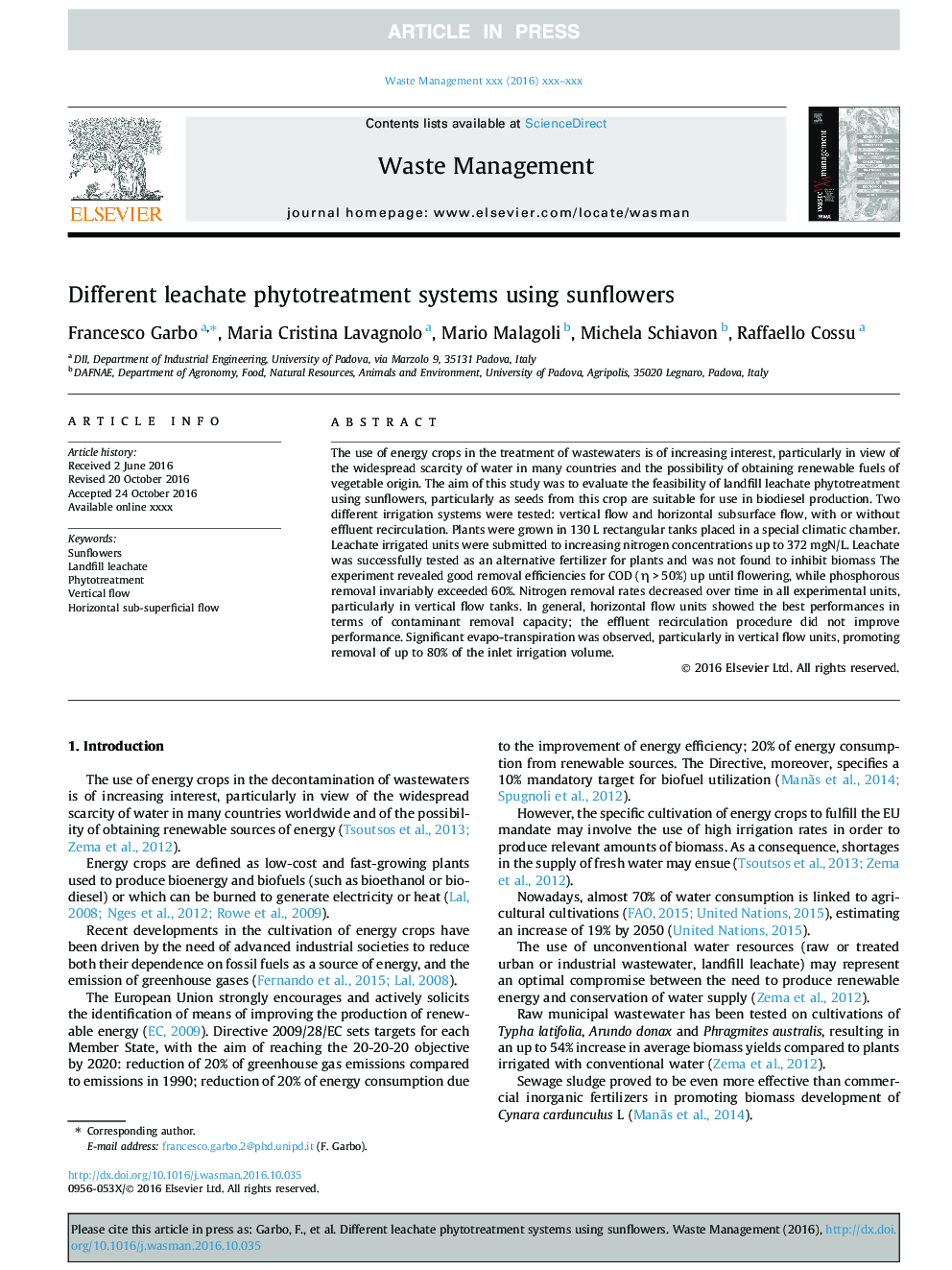| Article ID | Journal | Published Year | Pages | File Type |
|---|---|---|---|---|
| 5757031 | Waste Management | 2017 | 9 Pages |
Abstract
The use of energy crops in the treatment of wastewaters is of increasing interest, particularly in view of the widespread scarcity of water in many countries and the possibility of obtaining renewable fuels of vegetable origin. The aim of this study was to evaluate the feasibility of landfill leachate phytotreatment using sunflowers, particularly as seeds from this crop are suitable for use in biodiesel production. Two different irrigation systems were tested: vertical flow and horizontal subsurface flow, with or without effluent recirculation. Plants were grown in 130 L rectangular tanks placed in a special climatic chamber. Leachate irrigated units were submitted to increasing nitrogen concentrations up to 372 mgN/L. Leachate was successfully tested as an alternative fertilizer for plants and was not found to inhibit biomass development. The experiment revealed good removal efficiencies for COD (η > 50%) up until flowering, while phosphorous removal invariably exceeded 60%. Nitrogen removal rates decreased over time in all experimental units, particularly in vertical flow tanks. In general, horizontal flow units showed the best performances in terms of contaminant removal capacity; the effluent recirculation procedure did not improve performance. Significant evapo-transpiration was observed, particularly in vertical flow units, promoting removal of up to 80% of the inlet irrigation volume.
Related Topics
Physical Sciences and Engineering
Earth and Planetary Sciences
Geotechnical Engineering and Engineering Geology
Authors
Francesco Garbo, Maria Cristina Lavagnolo, Mario Malagoli, Michela Schiavon, Raffaello Cossu,
